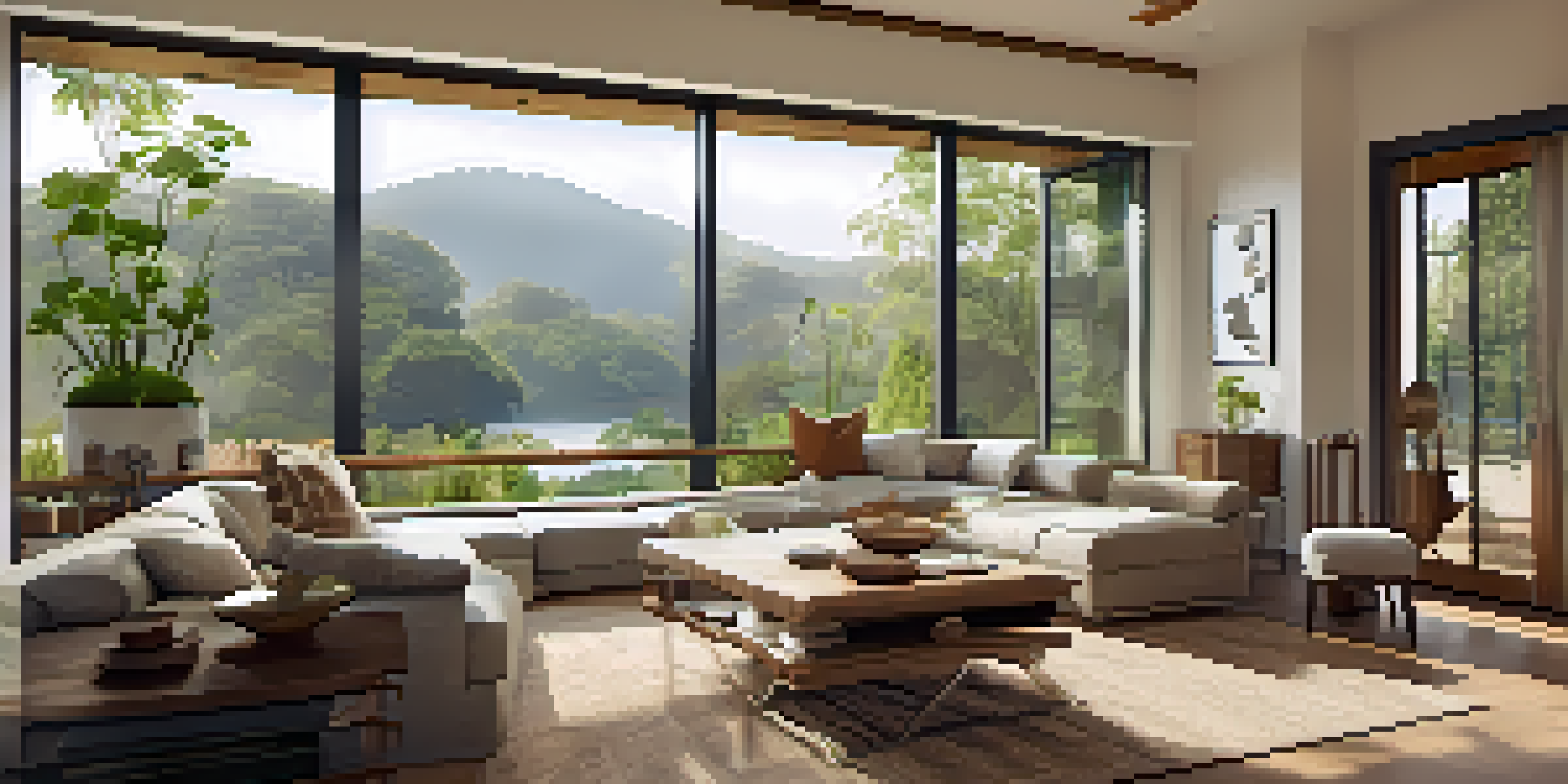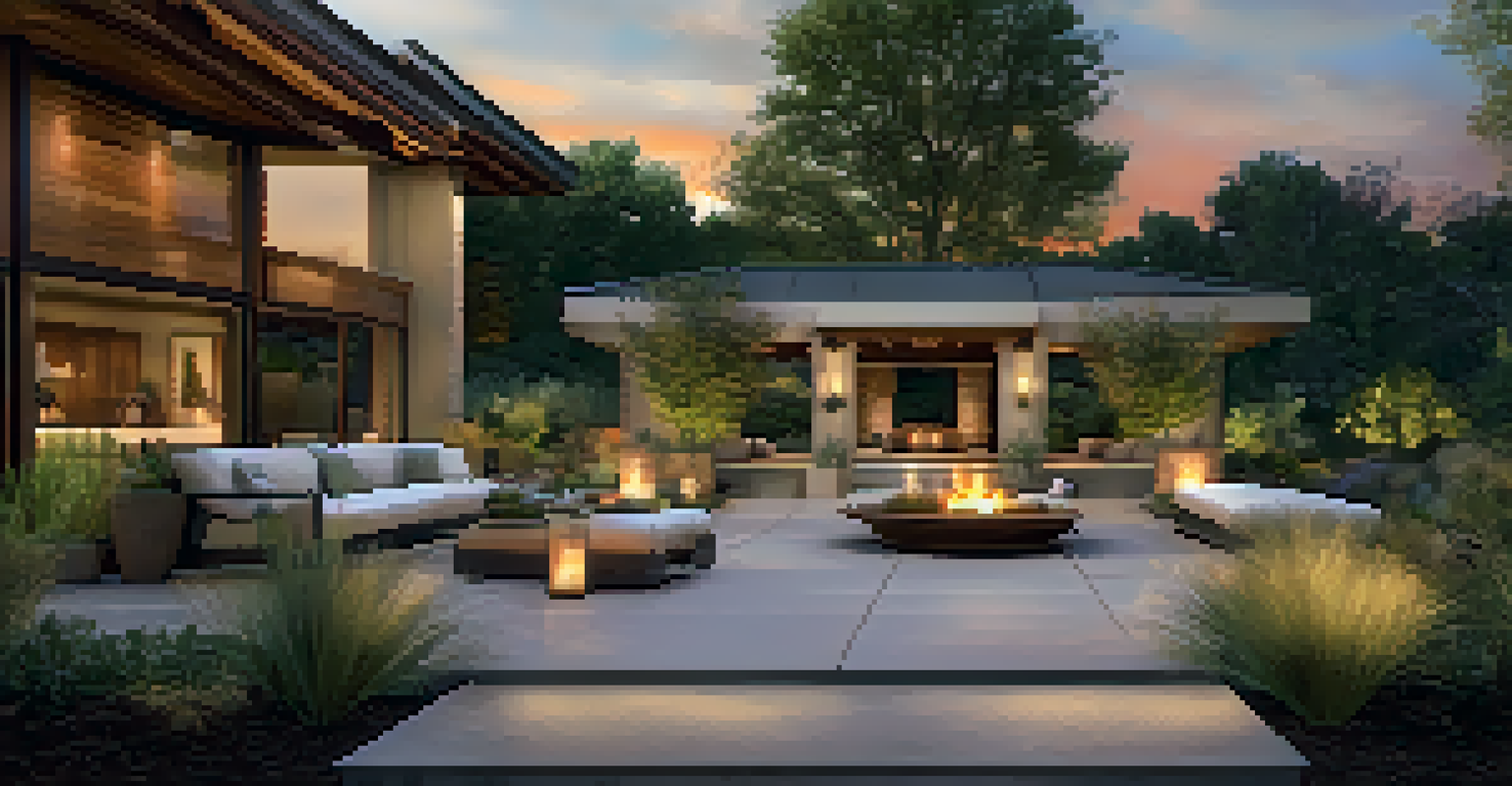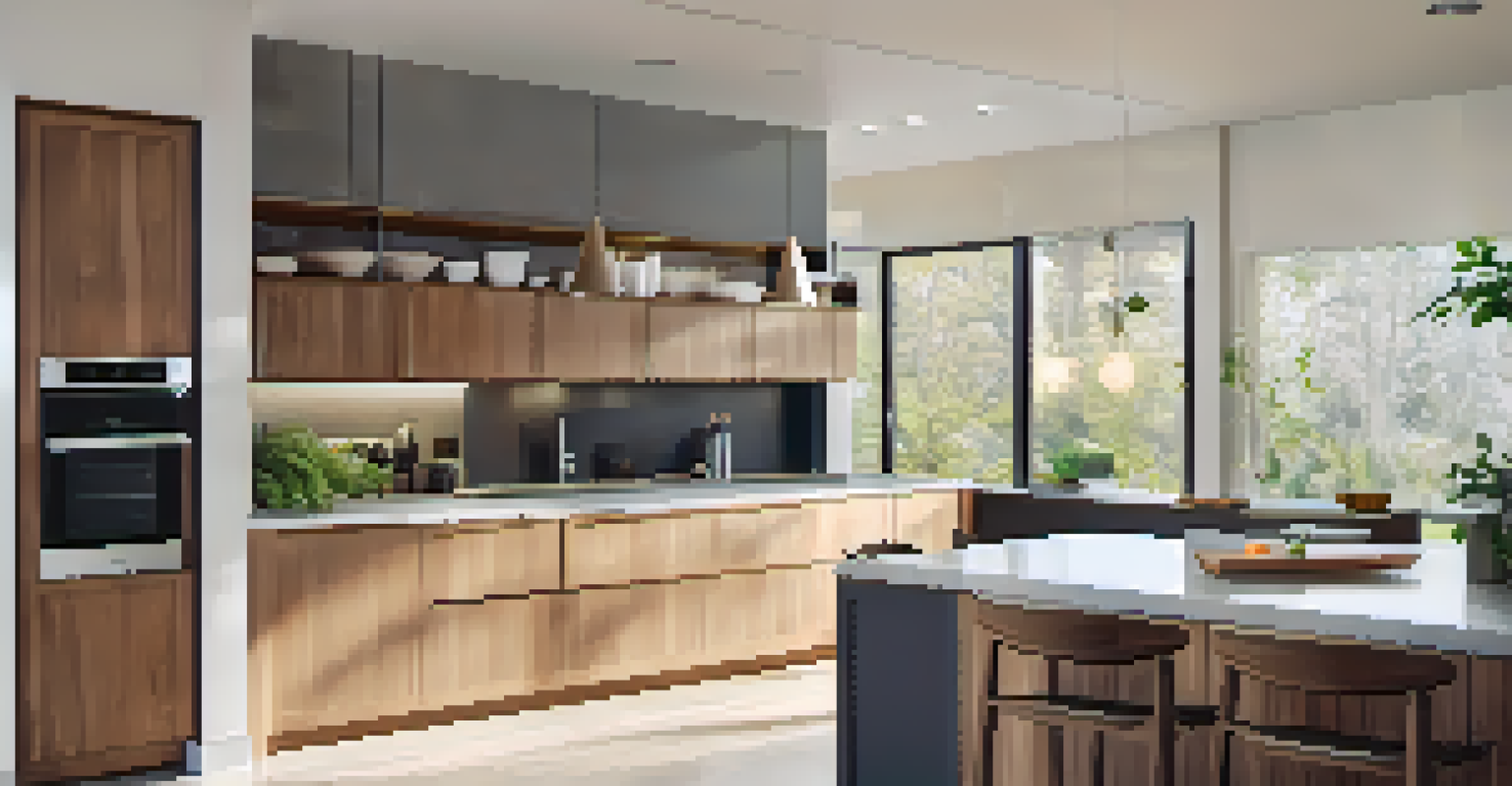Sustainable Building Practices for Luxury Developments

Understanding Sustainable Building in Luxury Developments
Sustainable building practices focus on reducing environmental impact while enhancing the quality of life. In luxury developments, this means integrating eco-friendly materials and energy-efficient technologies without compromising style and comfort. These practices not only support the planet but also resonate with discerning buyers who value sustainability.
Sustainability is no longer about doing less harm. It's about doing more good.
For instance, using reclaimed wood or recycled metals can add a unique aesthetic to high-end properties, showcasing a commitment to sustainability. Additionally, luxury developers are increasingly investing in renewable energy sources, such as solar panels, to power their buildings. This blending of luxury with sustainability creates a compelling narrative that attracts eco-conscious buyers.
Ultimately, understanding the principles of sustainable building is crucial for developers aiming to meet modern standards. By prioritizing these practices, luxury developments can set new benchmarks in the real estate market, proving that elegance and environmental responsibility can coexist harmoniously.
Incorporating Energy Efficiency in Design
Energy efficiency is a cornerstone of sustainable building practices, especially in luxury developments. Thoughtful design choices—like maximizing natural light and optimizing insulation—can significantly reduce energy consumption. This not only lowers utility bills for residents but also minimizes the property's carbon footprint.

For example, large windows can enhance natural lighting, reducing the need for artificial light during the day. Similarly, high-quality insulation materials can keep homes warm in winter and cool in summer, making heating and cooling systems more efficient. By prioritizing energy efficiency, developers can offer luxury living that is both comfortable and sustainable.
Sustainable Luxury Attracts Buyers
Luxury developments that integrate sustainable practices resonate with eco-conscious buyers, enhancing property appeal.
Moreover, incorporating smart home technology can further enhance energy efficiency. Features like programmable thermostats and energy monitoring systems empower residents to control their energy use effectively. This tech-savvy approach appeals to a modern audience that values convenience and sustainability.
Choosing Sustainable Materials for Luxury Homes
The materials used in construction significantly impact the sustainability of luxury developments. Opting for sustainable materials—such as bamboo flooring, recycled glass, and low-VOC paints—can greatly reduce environmental harm. These choices not only contribute to the health of the planet but also enhance indoor air quality for residents.
The future will be green, or not at all.
For instance, bamboo is a rapidly renewable resource that offers durability and beauty, making it an excellent flooring choice. Similarly, recycled glass can be used for countertops or decorative elements, adding an artistic touch while minimizing waste. Luxury developments that prioritize these materials demonstrate a commitment to both quality and sustainability.
Furthermore, using local materials can reduce transportation emissions and support the local economy. By sourcing materials closer to the construction site, developers can create a unique sense of place while also reducing their carbon footprint. This approach aligns perfectly with the growing trend of supporting local artisans and craftspeople.
Water Conservation Practices in Luxury Developments
Water conservation is increasingly vital in sustainable building practices, especially in luxury developments. Implementing features like rainwater harvesting systems, greywater recycling, and drought-resistant landscaping can significantly reduce water usage. This not only supports environmental sustainability but also appeals to residents who are conscious of their water footprint.
For example, a rainwater harvesting system can collect rainwater for irrigation or even non-potable uses inside the home. Greywater recycling systems can repurpose water from sinks and showers, further minimizing waste. These innovations allow luxury properties to maintain lush landscapes while being mindful of water resources.
Energy Efficiency Reduces Costs
Incorporating energy-efficient designs and technologies not only lowers utility bills but also minimizes environmental impact.
Additionally, choosing native plants for landscaping can reduce the need for irrigation and chemical fertilizers. Native plants are adapted to the local climate, making them resilient and easier to maintain. By integrating these water conservation practices, luxury developments can create beautiful environments that honor both nature and luxury living.
Integrating Renewable Energy Sources in Luxury Homes
Renewable energy sources are a game-changer in the realm of sustainable luxury developments. By integrating technologies like solar panels and geothermal heating, developers can provide residents with eco-friendly energy solutions that are both efficient and sustainable. This not only reduces reliance on fossil fuels but also lowers energy costs for homeowners.
For instance, solar panels can be elegantly incorporated into the design of a luxury home, providing power without compromising aesthetic appeal. Geothermal heating systems, which utilize the earth's natural temperature, can offer efficient climate control year-round. These renewable solutions enhance the property's value while aligning with a sustainable lifestyle.
Moreover, luxury developments that prioritize renewable energy often qualify for various incentives and rebates, making them more financially attractive. As the demand for sustainable living increases, integrating these energy sources will become a hallmark of luxury homes, appealing to a growing market of environmentally-aware buyers.
The Role of Smart Technology in Sustainable Luxury
Smart technology plays a pivotal role in enhancing sustainability within luxury developments. By integrating smart home systems, developers can offer residents greater control over their energy usage, leading to increased efficiency. Features like automated lighting, smart thermostats, and energy monitoring tools enable homeowners to optimize their consumption effortlessly.
For example, a smart thermostat can learn a homeowner's routine and adjust heating or cooling accordingly, reducing unnecessary energy use. Similarly, automated lighting systems can turn off lights in unoccupied rooms, further contributing to energy savings. These technologies make sustainable living convenient and accessible, appealing to tech-savvy buyers.
Smart Tech Boosts Sustainability
Smart home technology enhances energy efficiency and convenience, making sustainable living more accessible for luxury homeowners.
In addition, smart technology can enhance security and convenience, making luxury homes not just sustainable but also highly desirable. As homeowners become more aware of their environmental impact, integrating smart solutions will be a key differentiator in the luxury market, ensuring that eco-friendly practices are part of a modern lifestyle.
The Impact of Sustainable Practices on Property Value
Sustainable building practices can significantly enhance property value in luxury developments. As buyers become more environmentally conscious, properties that prioritize sustainability are often more attractive. This trend reflects a broader shift in the market, where eco-friendly features are increasingly seen as essential rather than optional.
For instance, homes equipped with energy-efficient appliances and renewable energy sources often command higher resale prices. Buyers recognize the long-term savings associated with reduced utility costs, making these homes a worthwhile investment. Furthermore, properties that boast sustainable certifications can stand out in a competitive market, attracting discerning buyers.

Additionally, the growing interest in sustainability can lead to increased demand for luxury developments that incorporate these practices. As more individuals seek to align their lifestyles with their values, the appeal of sustainable luxury will only continue to rise. This makes investing in sustainable practices not just responsible, but also a smart financial decision for developers.